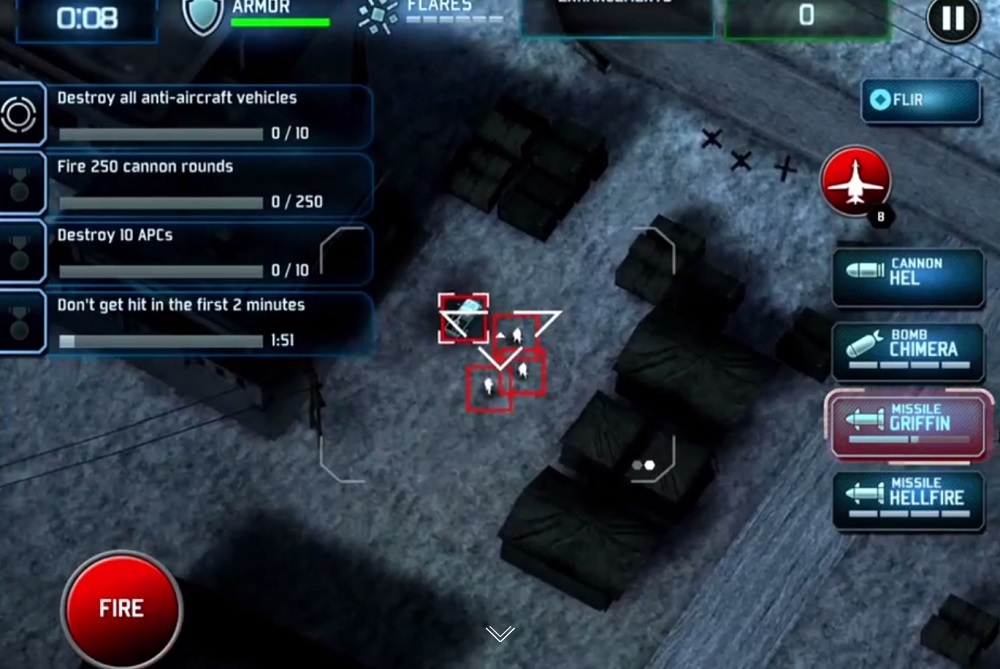GamesBeat: Are you looking for companies that are valued around the $2 million-to-$5 million range? What do you have in mind?
Agarwal: Our sweet spot is around that size of $2 million-to-$5 million, yes. It could be one person. It could be five people. This is my first Slash, and I’m seeing a lot of great energy out here. But our sweet spot as far as team size is more around five to eight people who work together and have launched one or two games and have some experience working together. Our hope is that in the next one to three projects they’ll come upon their hit game.
GamesBeat: Is this part of a push to be a worldwide game company?
Agarwal: Yes. As I said in our recent introduction, we want to be a $100 million company very soon. Organic growth can’t take us there, so it has to be a combination of acquisition and organic growth. This acquisition will be part of our international expansion.
GamesBeat: How do you hope to compete with companies like the Supercells of the world?
Agarwal: Well, I don’t hope to compete with Supercell. Some of these companies have become outliers. I believe that around third, fourth, fifth place, there’s still a lot of space. What I strongly believe in is the democratization of mobile gaming. If you come up with good games, people like you will write about them and consumers will appreciate them. Once you’ve brought strong KPIs, you can spend money on user acquisition and the app stores will pick up on it.
GamesBeat: As far as the rest of the competition in India, what’s that like? Are there a lot of game startups in India now?
Agarwal: What’s encouraging for me is that the mobile ecosystem in India is really exploding. The domestic market downloads are growing. Three years back, the developer body in India included roughly 30 or 40 developers. Today we have upward of 150. One developer is spawning three developers and then five developers. The great thing is that they’re trying to create content by Indians for India.
In our experimentation, a lot of good stuff is coming out from Indian developers. That’s why I believe, more and more, that the domestic market is ready to explode. More and more Indian companies are building a presence.
GamesBeat: Are Indian developers leading in some way compared to the rest of the world?
Agarwal: I don’t think so, no. What they’re learning and developing are things like level design and economy design. Things like that are very difficult. Most developers around the world are also grappling with them. Right now Indian developers are focused on developing a full free-to-play market, and then trying to see what volumes Android can handle as far as full apps. Gradually they will learn and evolve into advanced game mechanisms. That’s where I think they have to learn.
GamesBeat: Are you seeing some other foreign companies taking interest in the Indian game market yet?
Agarwal: The Indian game market has presences from companies like Zynga, EA, Ubisoft, Gameloft and so on, whether it’s a live operation or professional development, depending on their strategies. EA has been present through their publishing group in India. What I’m seeing now is a lot of offshoots in the form of people working at Zynga, working at EA, and then going off to try to do their own stuff. That’s part of where the developer ecosystem has been getting its motivation.
GamesBeat: Do you have any last words for us?
Agarwal: What I’d leave you with is that the Indian market is really about to explode. This is the right time for casual gaming developers to take a look at India and understand that market. Creating a brand and encouraging an affinity with your brand at a very early stage can put you in a good position when there are 300 million Android phones on the market there. Over the next 18 months, creating an affinity for your brand and your games is the right strategy to go with.
VentureBeat's mission is to be a digital town square for technical decision-makers to gain knowledge about transformative enterprise technology and transact. Learn More



